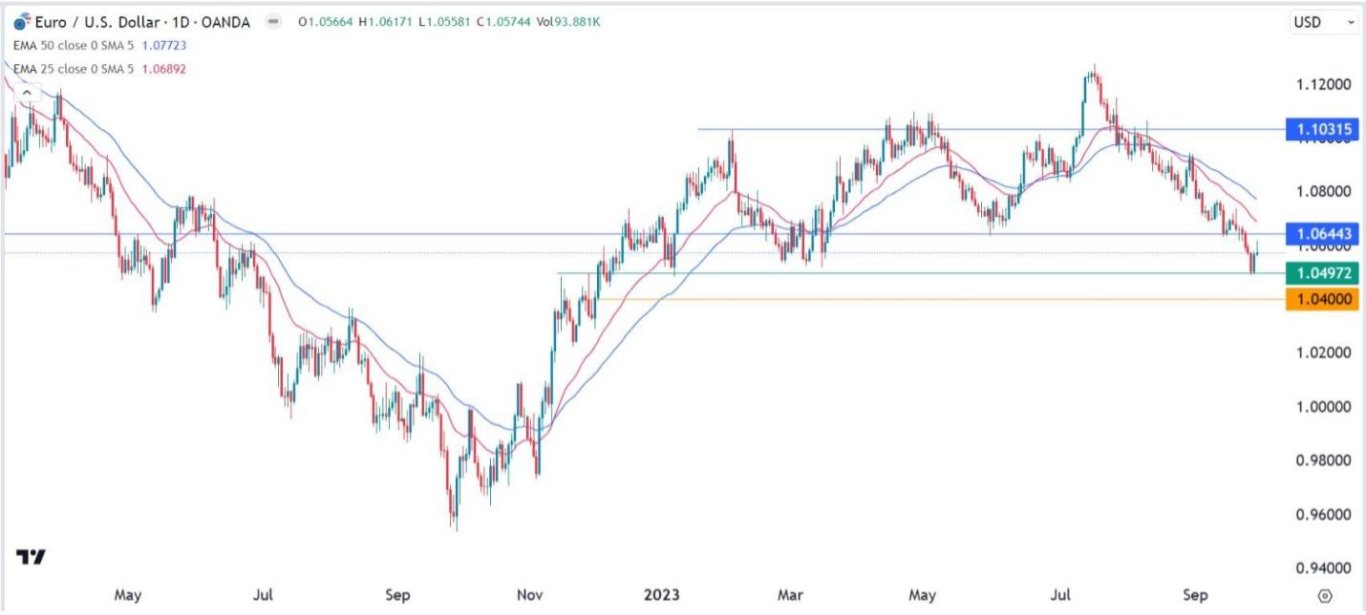[ad_1]
Forex Brokers We Recommend in Your Region
See full brokers list
- Sell the EUR/USD pair and set a take-profit at 1.0400.
- Add a stop-loss at 1.0675.
- Timeline: 1-5 days.
- Set a buy-stop at 1.0610 and a take-profit at 1.0700.
- Add a stop-loss at 1.0500.
The EUR/USD exchange rate continued its free-fall as the US dollar rally gained momentum. The pair slipped to a low of 1.0485, the lowest level since November 2022. It has slipped in the past eleven straight weeks, the first time it happened in many years.
The EUR/USD pair continued its downward trend after the relatively encouraging inflation numbers from the US and Europe. According to Eurostat, the headline consumer price index (CPI) dropped from 5.2% in August to 4.3% in September even as energy prices rose. This decline was better than the median estimate of 4.5%.
Core inflation, which excludes the volatile food and energy prices, dropped from 5.3% to 4.5%. These are highly encouraging numbers since they came at a time when Europe’s import costs are rising because of the weaker euro.
Meanwhile, in the United States, a closely watched inflation gauge also retreated in August. The Personal Consumption Expenditure (PCE) index data retreated to 3.5% while core PCE dropped to 3.9%. These are important numbers since they are the Fed’s favorite inflation gauges.
Looking ahead, the main catalyst for the EUR/USD pair will be events in the United States, which is facing a prolonged government shutdown. The shutdown will have an impact on the economy since the government is the biggest employer in te country.
It will also affect the market by shutting down key statistics offices. For example, the Bureau of Labor Statistics (BLS) is scheduled to publish the latest JOLTs job openings data on Tuesday and the official non-farm payrolls (NFP) numbers on Friday.
The EUR/USD pair will react to the signs of the end of the government shutdown and other economic numbers from the private sector. The key data to watch will be the latest manufacturing and services PMI from the US and Europe and the ADP private payrolls numbers.
The EUR/USD pair continued its downward trend last week as traders continued reacting on September’s Federal Reserve decision. As it dropped, it slipped below the key support at 1.0644, the lowest point in June this year and March 2020. This price was the neckline of the double-top pattern that formed around 1.1100. The double-top is one of the most popular bearish signs.
The EUR/USD pair has also remains below the 25-day and 50-day moving averages. Therefore, while it has formed a small bullish engulfing pattern, the path of the least resistance is downwards, with the next reference level being at 1.0400.

[ad_2]